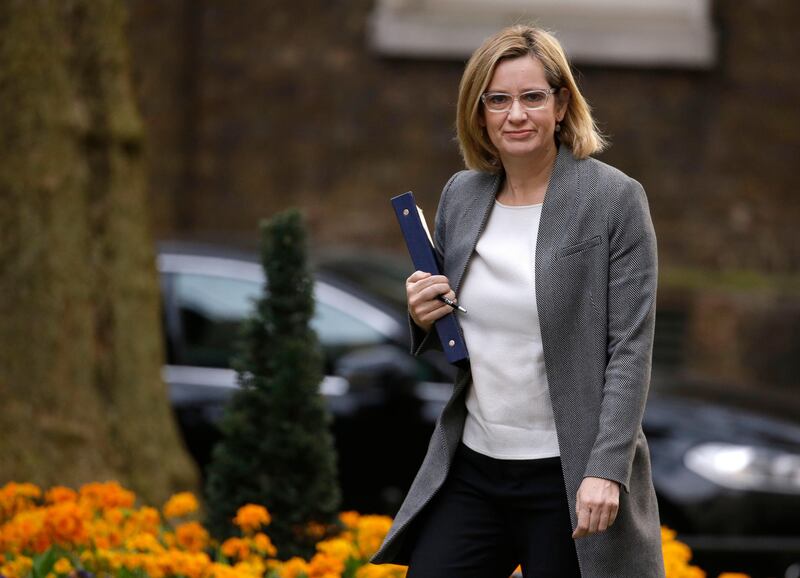A senior British politician is visiting Silicon Valley to urge major internet companies to do more to remove extremist comment and help investigators target suspected terrorists using encrypted communications.
The visit to an industry forum by Amber Rudd, the home secretary, marks the UK government’s latest demand for action by tech giants such as Facebook, Twitter and YouTube to prevent their platforms being exploited by extremists to raise funds, promote their causes or to plot attacks.
Ms Rudd said that the use of encrypted communication networks — such as WhatsApp — was “severely limiting” the ability of agencies to stop terrorist attacks or to bring to justice those involved with deadly plots.
End-to-end encryption can prevent law enforcement from reading messages sent between plotters unless they seize the devices. Ms Rudd said industry and governments needed to find a way to allow intelligence services to get information in “very specific circumstances”.
The UK had no intention of banning end-to-end encryption or of asking companies to create "back doors" that would allow investigators access to protected networks, she wrote in article for Tuesday's Daily Telegraph. Both Britain's MI5 and the FBI in the United States have previously said they wanted access to encrypted communications.
But she did not specify what she wanted to tackle the problem and said that solutions would be found in “confidential” talks with the industry. “Companies are constantly making trade-offs between security and usability and it is here where our experts believe opportunities may lie,” she wrote.
In her article, Ms Rudd said that ISIL had claimed to have created 11,000 new social media accounts in May alone. Analysis suggested that three-quarters of the group’s propaganda was shared within the first three hours, often reaching its target audience before the authorities had time to react.
The government has repeatedly criticised social media platforms following a series of attacks in London and Manchester this year that left 36 people dead. The Prime Minister, Theresa May, and her French counterpart Emmanuel Macron have promised to fine internet companies if they did not step up their efforts to remove terrorism-related content. The industry has said that it wanted to remove extremist material but had to balance those demands with democratic freedoms.
“The questions is whether the tech companies are going to get on board and whether anything concrete will come of their promises,” said Hannah Stuart, a security and extremism researcher at the London-based Policy Exchange thinktank. “It isn’t as if we haven’t heard them before.”
Ms Rudd was due to meet executives on Tuesday at the Global internet Forum to Counter Terrorism, which includes Facebook, Google and Twitter. The forum was set up to allow tech companies to discuss and find solutions. Facebook, which owns WhatsApp, said that she visited the company on Monday.
Following a global enforcement operation in April, Europol, the European policing agency, said that efforts by tech companies to remove inappropriate content had driven supporters of terrorist groups to set up a new platform to spread propaganda and to finance their activities. Rob Wainwright, the head of Europol, identified the encrypted messaging app Telegram as the biggest mainstream company, which has failed to help law enforcement. Telegram — which has been used by suspected terrorists — is not part of the Global internet Forum.
It’s founder, Pavel Durov, fled Russia after refusing to hand over data of Ukrainian protesters to the authorities and has spoken of his mistrust of governments and the primacy of free speech.
The Indonesian authorities had blocked access to some Telegram channels last month but struck a deal with the company on Tuesday to tackle terrorist propaganda. “We have discussed ways to block publicly available propaganda of terrorism on Telegram, which is something we have committed to do globally and particularly in Indonesia,” Mr Durov told reporters.






